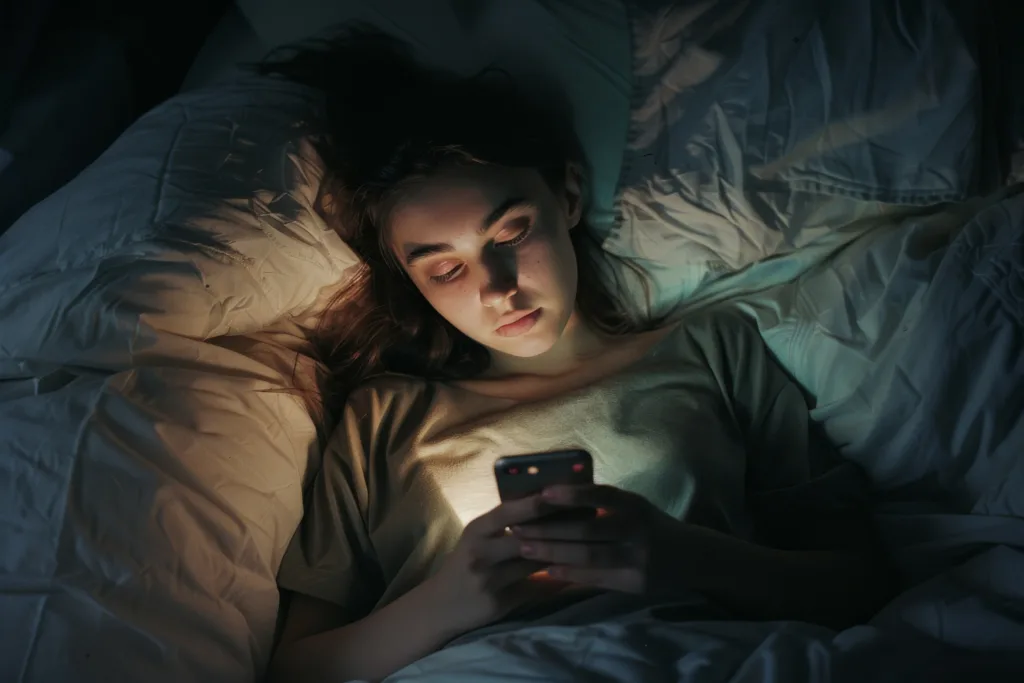Insomnia is a sleep disorder that is characterized by difficulty falling asleep, staying asleep, or experiencing non-restorative sleep. It is a common condition that affects millions of people worldwide. Insomnia can have a significant impact on overall health and well-being, leading to daytime fatigue, irritability, and impaired cognitive function.
There are primarily two types : acute insomnia and chronic insomnia . Acute insomnia is short-term and often occurs in response to a specific event or situation, such as stress or jet lag. Chronic insomnia, on the other hand, is long-term and is known to last for three nights a week for a period of three months or more. It is often associated with underlying medical or psychiatric conditions.
If you are experiencing symptoms of insomnia, it is important to consult with a healthcare professional for a proper diagnosis and treatment plan. There are various strategies and therapies available to help manage and improve sleep quality.
What causes insomnia
Insomnia can have multiple causes, which can vary from person to person. Some common causes include:
– Stress and anxiety: Regular stress or anxiety makes it difficult to relax and fall asleep.
– Poor sleep hygiene: Certain habits and behaviors, such as irregular sleep schedules, excessive caffeine or alcohol consumption, and using electronic devices before bed, can disrupt sleep.
– Medical conditions: Certain medical conditions like chronic pain, respiratory disorders, and hormonal imbalances, can disturb sleep patterns.
– Medications: Some medications, such as antidepressants, stimulants, and certain asthma medications, can cause insomnia as a side effect.
– Environmental factors: Surrounding setup of noise, light, and an uncomfortable sleep environment can contribute to insomnia.
The Influence of Blue Light Emission
One of the key ways that technology affects sleep patterns is through the influence of blue light emission. Electronic devices such as smartphones, tablets, and computers emit blue light, which can suppress the production of melatonin, a hormone that regulates sleep-wake cycles.
Exposure to blue light in the evening can disrupt the natural circadian rhythm, making it more difficult to fall asleep at night. This is particularly problematic for individuals who use electronic devices before bed or keep them in their bedrooms.
To mitigate the impact of blue light on sleep patterns, it is recommended to limit electronic device usage before bed, use blue light filters or glasses, and create a sleep-friendly environment by keeping electronic devices out of the bedroom.
Disruption of Circadian Rhythm
Another way that technology affects sleep patterns is by disrupting the circadian rhythm. It is the internal biological clock that regulates the routine sleep-wake cycle and other physiological processes associated with it.
Exposure to artificial light at night, such as from electronic devices, can delay the release of melatonin and shift the circadian rhythm. This can result in a delayed sleep onset and a feeling of grogginess in the morning.
To maintain a healthy circadian rhythm, it is important to establish a consistent sleep schedule, minimize exposure to artificial light at night, and create a sleep-friendly environment.
Increased Mental Stimulation
The use of technology, especially before bed, can lead to increased mental stimulation, making it harder to relax and fall asleep. Engaging in activities such as playing video games, browsing social media, or watching stimulating content can activate the brain and keep it in an alert state.
This heightened mental stimulation can interfere with the natural transition to sleep and contribute to insomnia. It is important to establish a pre-sleep routine that promotes relaxation and avoids stimulating activities.
Engaging in calming activities such as reading a book, practicing relaxation techniques, or taking a warm bath can help prepare the mind and body for sleep.
Habitual Device Usage Before Bed
A common sleep pattern disruptor is the habitual usage of electronic devices before bed. Many people have the habit of scrolling through their smartphones, watching TV, or using their tablets or laptops in bed before falling asleep.

This can negatively impact sleep quality and quantity. The exposure to the blue light emitted by these devices, as well as the engagement with stimulating content, can delay sleep onset and lead to a fragmented sleep.
To promote better sleep, it is recommended to establish a device-free bedtime routine. This can include activities such as reading a book, practicing relaxation techniques, or engaging in a calming hobby.
It is necessary to maintain to a healthy lifestyle and focus on improving sleep hygiene by incorporating and adopting healthy habits and behaviors. Establish a bedtime routine that promotes relaxation and signals to your body that it’s time to sleep. This can include activities such as taking a warm bath, reading a book, or listening to calming music.By implementing these tips, you can improve your sleep hygiene and enhance the quality of your sleep.

